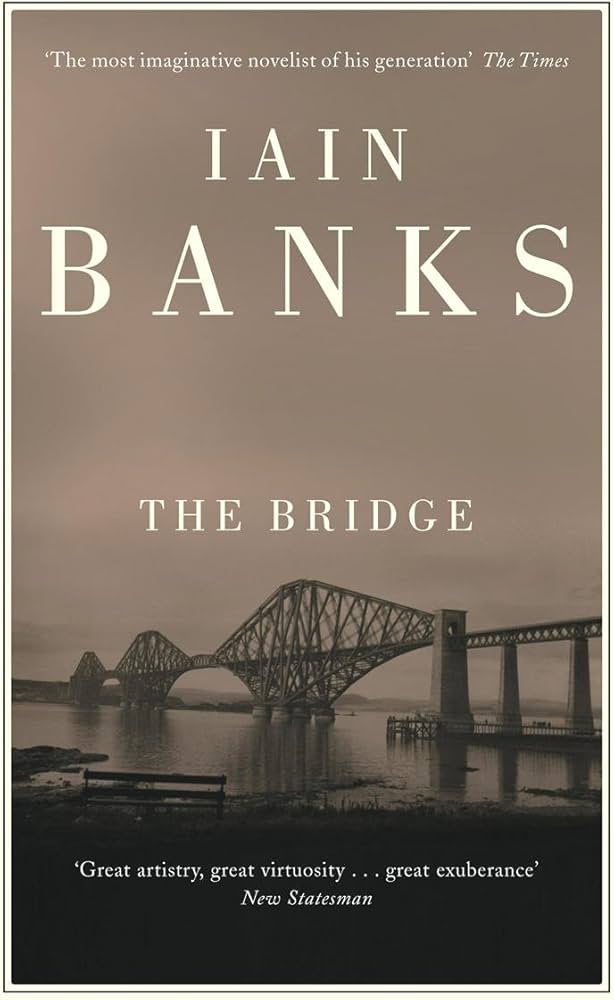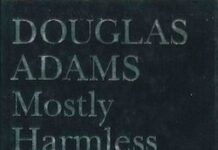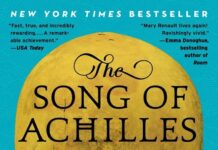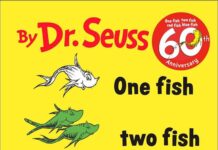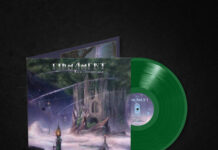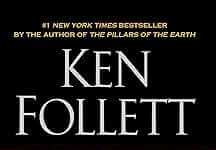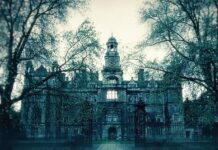In the vast expanse of speculative fiction, Iain Banks’ seminal work “The Bridge” stands as a masterful exploration of dual realities, where the boundaries of the mundane and the surreal intertwine seamlessly. This intricate narrative invites readers to traverse the labyrinthine corridors of the human psyche while simultaneously journeying across an enigmatic, sprawling bridge that connects worlds both familiar and foreign. Through a deftly woven tapestry of characters and perspectives, Banks challenges our understanding of consciousness, identity, and the very concept of existence. In this review, we will delve into the layers of meaning embedded within the novel, examining how Banks navigates the intersection of life and dreams, reality and illusion, offering us not just a story, but a profound meditation on the nature of reality itself. Join us as we embark on an enlightening examination of ”The Bridge,” where the exploration of dualities reveals the complexities of the human experience.
The Intricate Weave of Reality and Fiction in The Bridge
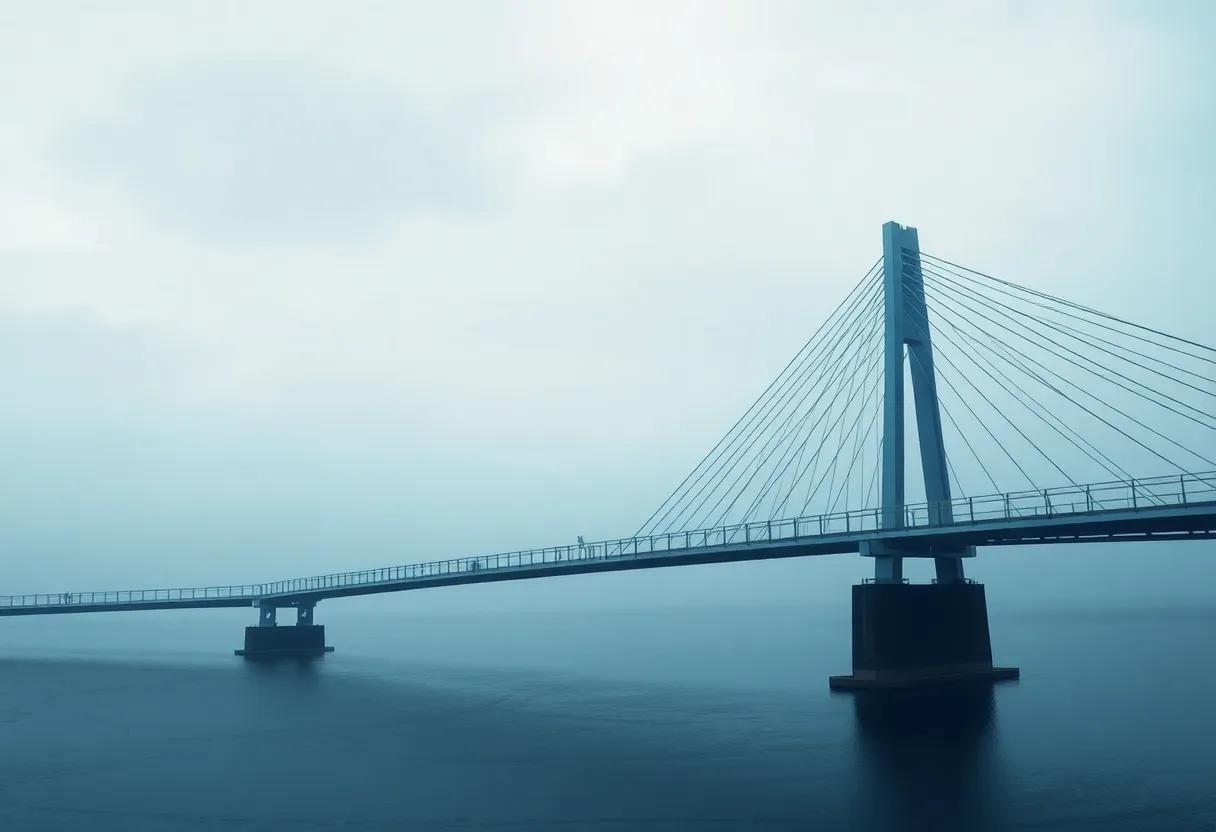
The duality present in Iain Banks’ The Bridge serves as a interesting lens through which to examine the tension between reality and creativity. The structure of the novel itself mirrors this complex interplay, with its two distinct narratives that intertwine and resonate. On one hand, there is the stark reality of the protagonist’s life, characterized by mundane experiences that highlight human vulnerability, while on the other, the ethereal journey through a surreal, dreamlike landscape unfolds, elevating the reader’s perception of the narrative. This juxtaposition prompts reflections on how our identities are shaped not only by our direct experiences but also by the fabric of our dreams and desires, creating a tapestry that is vast yet intimately personal.
Within this woven narrative, several themes emerge, drawing attention to the underlying connection between the two realms:
Best-Selling Books in This Category
- Isolation and Connection: The protagonist oscillates between profound solitude and fleeting moments of connection, encapsulating the human experience.
- surrealism vs. Reality: The dreamlike sequences challenge the limits of perception, urging readers to question what defines ‘real’ experiences.
- Identity and Self-Exploration: The quest for self unfolds amid fantastical journeys, reflecting a deeper existential search.
| theme | Realism | Surrealism |
|---|---|---|
| Isolation | Protagonist in everyday life | Astray in dreamscape |
| Connection | Moments of human interaction | Visual encounters with the other |
| Search for Self | Personal struggles | Explorations of the psyche |
Unpacking the Symbolism: Bridges as Metaphors for Connection

Bridges serve as powerful symbols of connection, transcending physical boundaries while representing the bond between disparate worlds. In Iain Banks’ ‘The Bridge’, the titular structure becomes a multifaceted metaphor, embodying the dichotomy between reality and illusion. The bridge serves not only as a link between two realms,but also as a conduit for the characters’ psychological journeys. Through its arches and spans, Banks prompts readers to ponder the nature of human experience—how moments of clarity can arise amid confusion, and how pathways may lead to both discovery and disorientation.
At its core, the bridge exemplifies the tension between stability and turmoil. The characters find themselves navigating not just the physical space, but also their emotional landscapes. As they traverse the bridge, they grapple with profound themes, including:
- Isolation vs.Togetherness: Exploring how external connections impact internal states.
- Reality vs. Illusion: challenging perceptions and questioning what is truly real.
- Life and Death: The bridge as a symbol of transitional phases in existence.
This exploration of symbolism invites readers to reflect on their own bridges—the connections they forge, the distances they traverse, and the personal transformations that arise through interaction and introspection.
Character depth: The Lives and Struggles Within Dual Realities
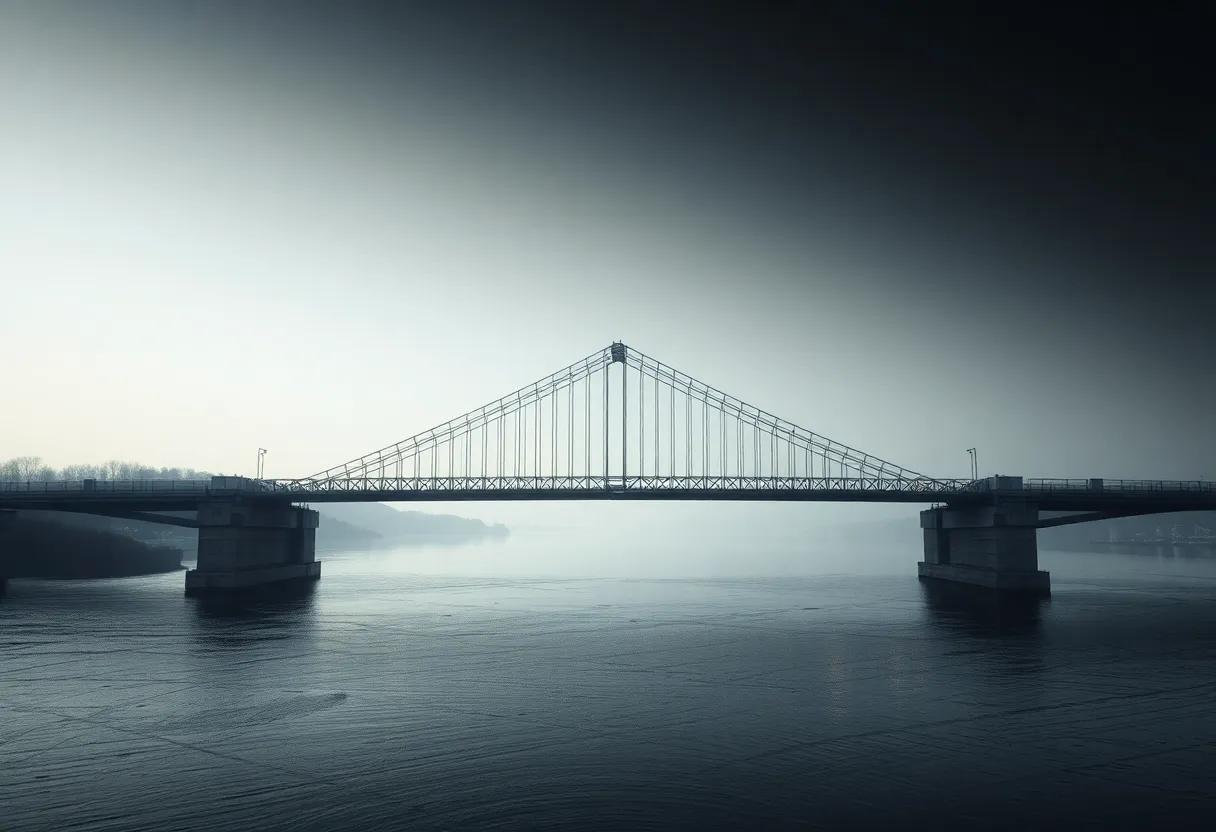
Iain Banks masterfully intertwines the tangible and metaphysical realms in “The Bridge,” creating a narrative that dives deep into the psyche of its characters. Within the physical world,we encounter John Orr,who faces the brutal realities of a life suspended between time and identity. His struggle with memory and existential dread mirrors the psychological battles fought by others, showcasing how the human experience manifests in varied dimensions. The richly detailed backstories of secondary characters,such as the enigmatic Yvonne and the steadfast Robert,contribute to a layered exploration of connection and isolation,inviting readers to ponder how shared experiences bridge the gaps between disparate lives.
In the dreamlike landscape of the bridge, characters confront their deepest fears and desires, reflecting the duality that defines their existence. This setting is not just a physical structure but an emotional conduit,enabling profound change. Here, we see how individuals grapple with their dual realities through:
- Ambition: Characters like John are driven by the hope of escaping their current existence.
- Regret: Past choices haunt many, showing how their actions lead to diverging paths.
- connection: Bonds formed in the bridge’s world reveal the importance of interpersonal relationships amidst struggle.
To further illustrate the juxtaposition of lives entwined within these realities, the table below captures the crucial themes represented by key characters:
| Character | Struggle | Resolution |
|---|---|---|
| John Orr | Memory loss and identity crisis | Rediscovery through self-reflection |
| Yvonne | Isolation in relationships | Building emotional connections |
| Robert | Confronting past traumas | Acceptance and forgiveness |
Narrative Structure: A Dance Between the Real and the Surreal

In Iain Banks’ The Bridge,the narrative unfolds like a surreal tapestry interwoven with strands of reality,creating a landscape where the ordinary collides with the extraordinary. The protagonist’s journey through the surreal architecture of the bridge serves as a metaphorical exploration of the dualities within human existence. Here, Banks invites readers to navigate a world where the boundaries of perception blur, leading to a dance of identities and consciousness. The interplay of the mundane and the fantastical is palpable, as he deftly navigates themes of existentialism, identity, and the nature of reality, prompting readers to question what is true and what is mere illusion.
As characters traverse both the physical and dream-like realms, Banks employs a variety of narrative techniques that enhance the surreal experience. Through the use of shifting perspectives and fragmented timelines, he creates a complex structure that mirrors the chaos of the human mind. Readers are left to ponder the significance of each layer, like peeling back the skin of an onion, revealing deeper truths beneath the surface. The bridge itself becomes a character, embodying the conflict between stability and fluidity, reality and fantasy. In navigating this intricate narrative maze, readers are encouraged to embrace the ambiguity and uncertainty that define the human condition.
Themes of Isolation and Community Explored in The Bridge

The intricate interplay of isolation and community is a central theme in Iain Banks’ ’The Bridge,’ providing a rich tapestry upon which the narrative unfolds. The protagonist, John, navigates both external and internal landscapes, representing a universal struggle with isolation in a world that often feels dystopian.His journey across the symbolic bridge serves as a metaphor for the divide between self and society. Within this isolated state, John grapples with feelings of detachment, which are illustrated through his interactions—or lack thereof—with others. Characters around him reflect varying degrees of connection, highlighting a form of existential solitude that resonates deeply throughout the text.
In contrast, the bridge itself becomes a vessel of community, connecting disparate worlds and ideas. As characters from different backgrounds intersect within its confines, the narrative exposes the potential for unity amidst diversity. The bridge symbolizes more then mere physical connection; it embodies the collective human experience that transcends individual struggles. Through communal moments, whether they be shared conversations or brief connections, Banks paints a picture of hope against isolation. The characters’ interactions frequently enough reveal their desire for belonging, emphasizing that while isolation can be profound, the innate need for community is equally compelling and vital to the human condition.
The Role of Memory: How the past Shapes the Journey Ahead
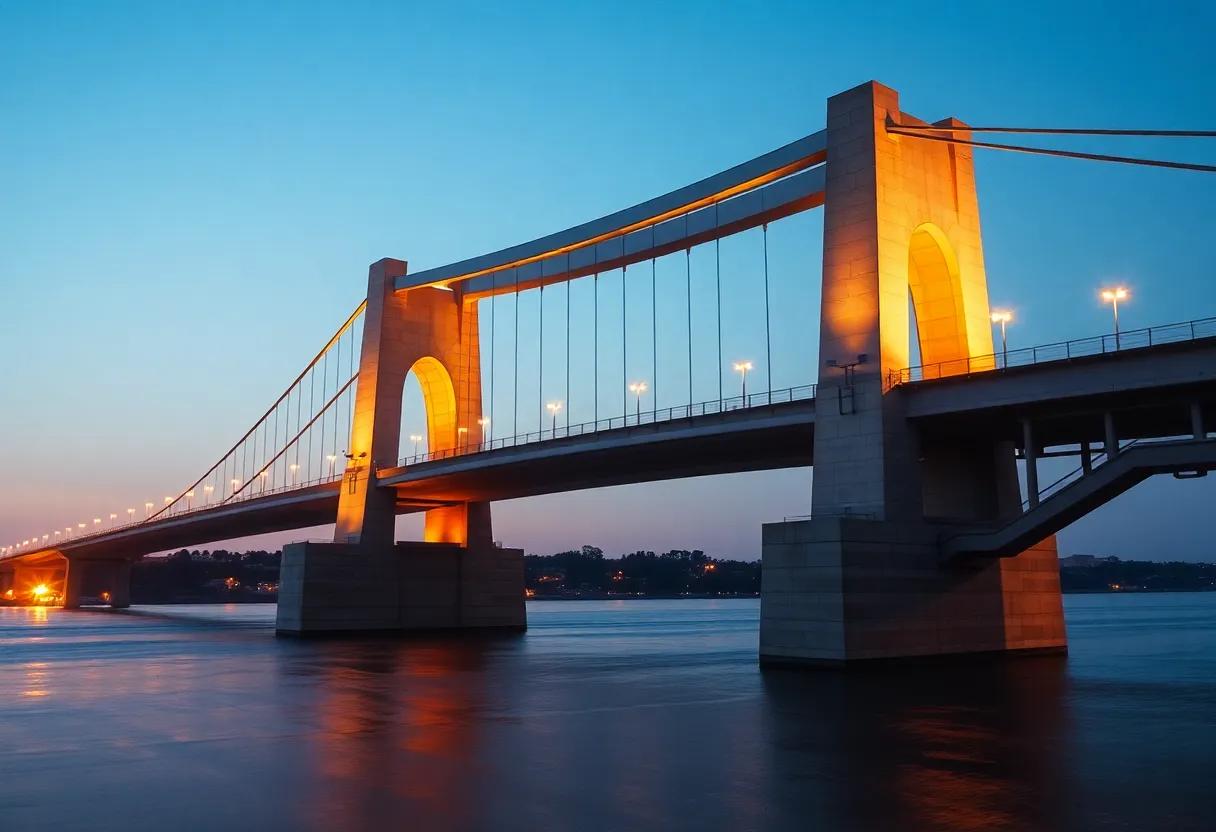
In Iain Banks’ The Bridge, memory functions as a pivotal thread weaving together the tapestry of the protagonist’s consciousness, illustrating how the past intricately influences the present and future. The journey through the surreal landscape of the narrative is fueled by the character’s reflections, experiences, and fragmented recollections that echo throughout the story. This interplay emphasizes the notion that our memories are not mere shadows of experiences, but rather active participants in shaping our identities and choices. As the protagonist navigates two divergent realities, the reader is invited to ponder the profound impact of recollection on perception and decision-making.
Moreover, the novel artfully showcases how the reconciliation of past traumas and joys can lead to personal evolution. It questions the reliability of memory,suggesting that what we choose to remember—or forget—can alter our trajectory in important ways. Through compelling character arcs and a meticulously crafted plot, banks explores themes of self-discovery, regret, and redemption, allowing readers to witness the transformation that arises from confronting one’s history.The layers of memory serve as both guide and obstacle, pushing the protagonist towards inevitable choices while simultaneously grounding him in an emotional landscape that defines his journey ahead.
Language and Style: The Poetic Prose of Iain Banks
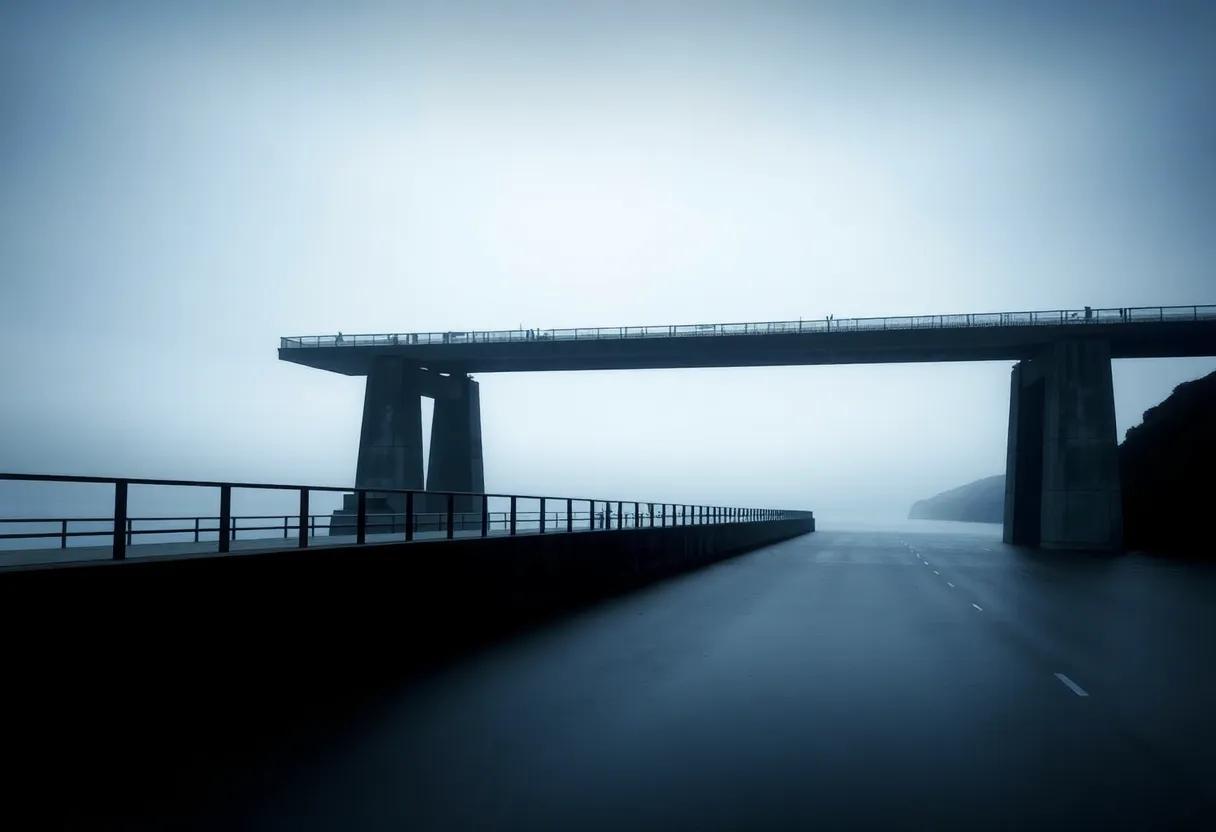
Iain Banks’ prose in ”The Bridge” resonates with a duality that mirrors the novel’s thematic exploration of life’s contrasts.His poetic language complements the intricacies of the narrative, often blending the surreal with the mundane. Through lush descriptions and lyrical passages, Banks invites readers to traverse the boundaries of reality and imagination. The rich tapestry of his words creates a visceral experience, evoking emotions that linger well beyond the page. Moments where characters grapple with their inner conflicts are articulated with such tenderness that they compel the reader to pause and reflect, making the text a vessel of both beauty and insight.
The juxtaposition of lucid thought and obscured perception in Banks’ writing style enhances the enigmatic landscape of the novel. As characters navigate the bridge—both as a literal structure and a metaphor for connection—banks employs a variety of literary devices, including:
- Imagery: Vivid descriptions that paint the emotional landscape.
- Symbolism: Objects and events that carry deeper meanings.
- Stream of consciousness: Capturing the fluidity of thought and memory.
In this unique blend of styles,Banks encourages readers to explore their interpretations of reality. His ability to weave the poetic into prose is not merely an aesthetic choice; it serves to illuminate the existential themes that underpin the story. As an inevitable result, “The Bridge” stands as a testament to the power of language, challenging readers to embrace the complexity of their own perceptions and the interconnectedness of all things.
Emotional Resonance: Connecting Readers to the Characters’ Plights
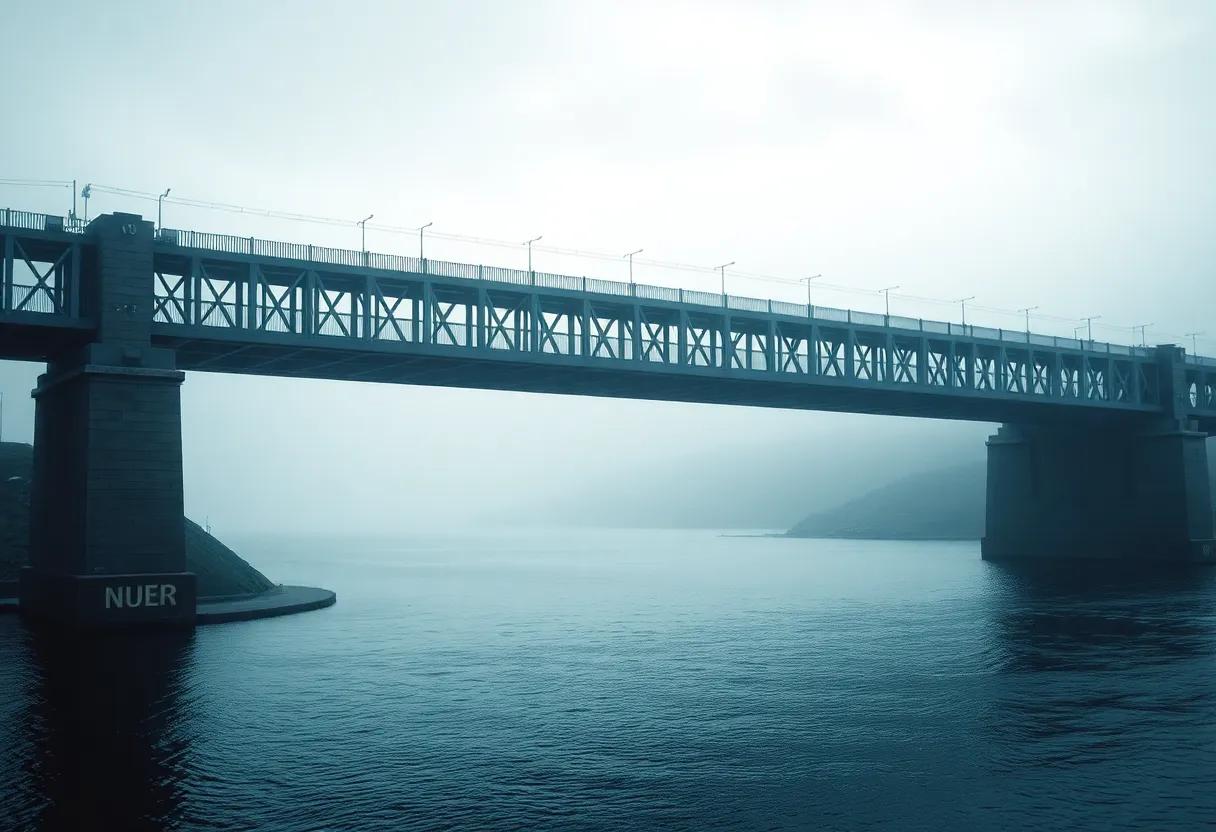
The emotional landscape of Iain Banks’ ‘The Bridge’ unfolds like a delicate tapestry, interweaving the struggles of its characters with the surrealism of the dual realities they inhabit. As readers navigate through the shifting corridors of despair,hope,and existential questioning,they are drawn into the profound depths of the protagonists’ journeys. Each character, from the disoriented figure on the bridge to those trapped in their own psyches, embodies a unique spectrum of human emotion that resonates with universal themes of madness, isolation, and the search for connection. The author’s intricate characterization becomes a powerful conduit for readers, inviting them to experience the full weight of the characters’ plights.
To enhance this emotional connection, Banks masterfully employs a variety of narrative techniques that evoke empathy and understanding. Key elements include:
- Inner Monologues: These offer profound insights into characters’ minds,revealing their fears and desires.
- Symbolism of the Bridge: Represents both a literal and figurative crossing between worlds, mirroring the characters’ struggles.
- Juxtaposition of Realities: Creates a stark contrast that heightens emotional intensity and invites reader reflection.
For a clearer understanding of the emotional stakes, consider the following table outlining the main characters and their emotional arcs:
| Character | Emotional Arc |
|---|---|
| Gillian | Conflicted between dreams and reality, searching for her own identity. |
| john | Struggles with feelings of despair, gradually finding solace through connection. |
| Dr. Wylie | Embodies the rational approach, dealing with inner turmoil and professional disillusionment. |
Pacing and Tension: Creating Suspense in Two Worlds
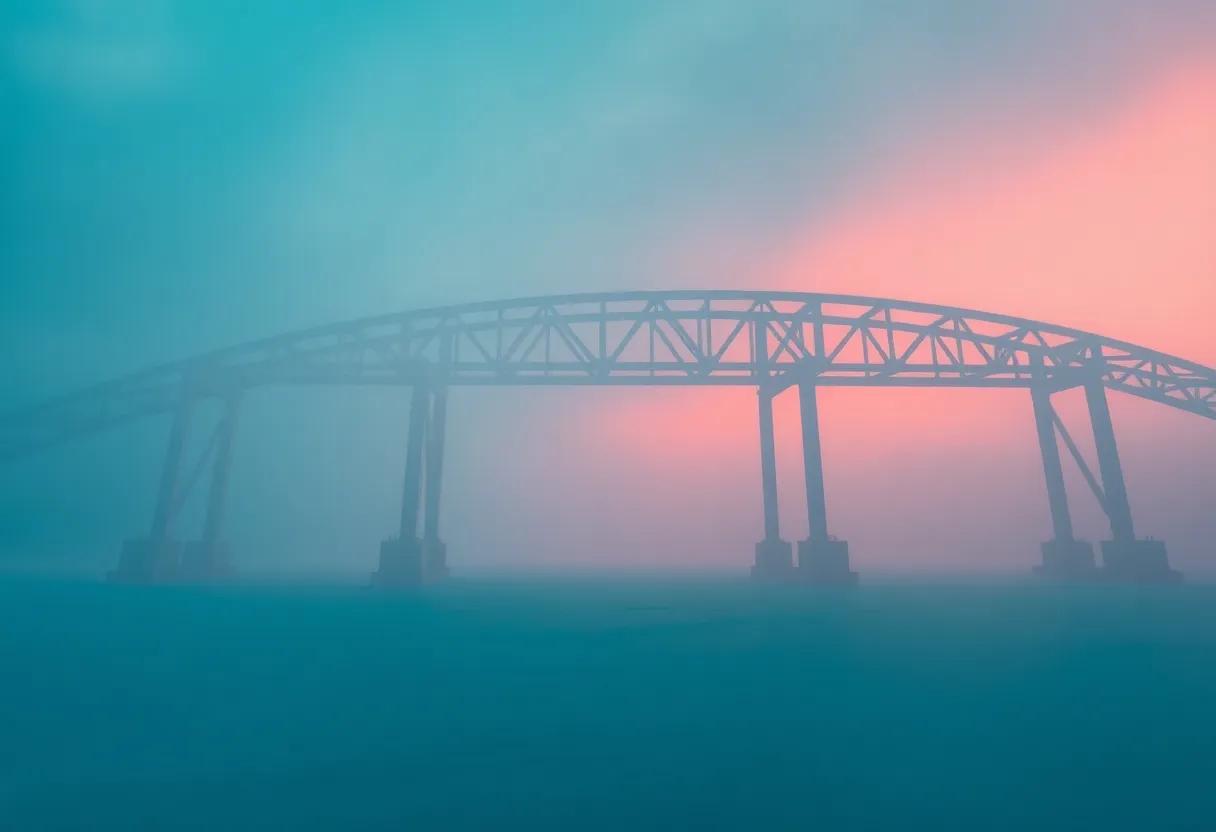
In Iain Banks’ ‘The Bridge’, the expertly woven threads of pacing and tension serve to create an electrifying atmosphere that keeps readers on the edge of their seats. The dual realities presented in the novel—one grounded in the banal struggles of everyday life and the other a surreal dreamscape—facilitate a constant push and pull between familiarity and the unknown. Banks skillfully manipulates the timing of key events, building suspense by delaying resolutions and revealing critical plot points at just the right moments. This technique encourages readers to remain deeply engaged, as they navigate the labyrinth of the protagonist’s journey through both worlds.
To amplify the sensation of suspense,Banks employs various literary devices that enhance the pacing of the narrative.His use of short, fragmented sentences during moments of heightened tension creates a sense of urgency, compelling readers to turn pages faster. Conversely, longer, more descriptive passages draw the narrative out, allowing tension to simmer just beneath the surface. The interplay between these styles effectively cultivates an atmosphere of ambiguity that permeates the two worlds,making each transition between them a pulse-quickening experience.
| Element | description |
|---|---|
| Pacing | Manipulation of narrative speed via sentence structure and length. |
| Tension | Creation of suspense through strategic plot reveals and character dilemmas. |
| Dual Realities | Blending of the mundane and the surreal to engage readers on multiple levels. |
Visual Imagery: Evoking Landscapes and Mindscapes

The landscapes and mindscapes in Iain Banks’ the Bridge are intricately woven, creating a tapestry of real and surreal experiences that challenge the reader’s perception of reality. Banks excels in his use of vivid imagery to paint both the tangible and the ethereal, allowing readers to traverse the physically daunting and the psychologically vast. From the detailed remnants of a forgotten world to the labyrinthine corridors of the protagonist’s mind, each scene is meticulously crafted, inviting us to explore the rich textures of existence. The author invites us to witness:
- Stark urban environments that reflect desolation.
- Dream-like landscapes that hint at deeper truths.
- Villages at the edge of reality that blur the line between fantasy and life.
As we travel through these bifurcated realms, Banks uses symbolic imagery to enhance our understanding of the characters’ inner conflicts. The bridge,in its literal and metaphorical forms,stands as a powerful symbol of transition and the human experience,serving as a conduit between the real and the imagined. This innovative structure offers insights into:
| Element | Significance |
|---|---|
| The Bridge | A passage between two realities |
| Landscapes | Representations of emotional states |
| Mindscapes | Exploration of identity and consciousness |
Through his detailed descriptions and thematic symbols, Banks deftly invites the reader to immerse themselves fully in the narrative, actively engaging with the landscapes that are as much a part of the story as the characters themselves. This interplay between the external world and the internal psyche showcases the depth of imagination that defines his work, prompting us to ponder our own journeys across the bridges of our lives.
Recommendations for Further Reading: Expanding on Dual Realities

For those intrigued by the concept of dual realities,Iain Banks’ oeuvre offers a rich tapestry of narratives that can deepen your understanding and appreciation of this theme. Consider exploring these captivating works:
- The Crow Road - A complex weaving of family secrets and existential ponderings that showcases Banks’ ability to transport readers between different realities of memory and present.
- The Culture Series – A science fiction saga that delves into various perspectives on morality, society, and individual agency across diverse worlds, highlighting the contrasts and connections between seemingly disparate realities.
- espedair Street – This novel offers a unique look at the duality of fame and anonymity through the life of a former rock star, providing a personal reflection on the alternate realities that exist within one’s identity.
- Walking on Glass – A fascinating narrative that interlaces three separate storylines, each reflecting different realities and challenging the nature of perception and existence.
Additionally, the following selections from other authors complement the themes explored in Banks’ work and echo the investigation of dual realities:
| Author | Title | Theme |
|---|---|---|
| Haruki Murakami | Kafka on the Shore | Magical Realism – Journey through metaphysical realms and split consciousness. |
| Philip K. Dick | The Man in the High Castle | Alternative History – Questioning reality through a world where Axis powers won WWII. |
| David Mitchell | Cloud Atlas | Interwoven Narratives – Multiple timelines revealing interconnected destinies. |
Cultural Reflections: The Bridge in the Context of Contemporary Society

In examining Iain Banks’ ‘The Bridge,’ we find a profound reflection on the intricate tapestry of contemporary society. The novel, with its dual narrative structure, allows readers to experience a world split between the mundane and the surreal, mirroring the fragmentation often felt in our modern lives. The bridge serves as a powerful metaphor, signifying connection yet also isolation, presenting a space where disparate elements converge and diverge. Through its layered storytelling, the text urges us to confront the contradictions we navigate daily, pushing readers to question their own realities amid the cacophony of multiple existential experiences.
The themes prevalent in ‘The Bridge’ resonate especially strongly with the cultural shifts of today. As individuals increasingly straddle various identities, the novel prompts reflection on how we construct our personal narratives within societal frameworks. Various aspects of contemporary life are encapsulated in the text, such as:
- The search for identity: Characters grapple with self-discovery in a split reality.
- Connectivity vs. Isolation: The bridge symbolizes our simultaneous interconnectedness and the loneliness that often accompanies modern existence.
- Societal Structures: The novel critiques the systems that govern our lives, encouraging readers to question the status quo.
In this sense, ‘The Bridge’ offers not just a narrative but a lens through which we can examine the multidimensional landscapes we inhabit, asserting that our journeys—no matter how fractured—are worth exploring.
Iain Banks: A Master of Blending Genres and Challenging Boundaries
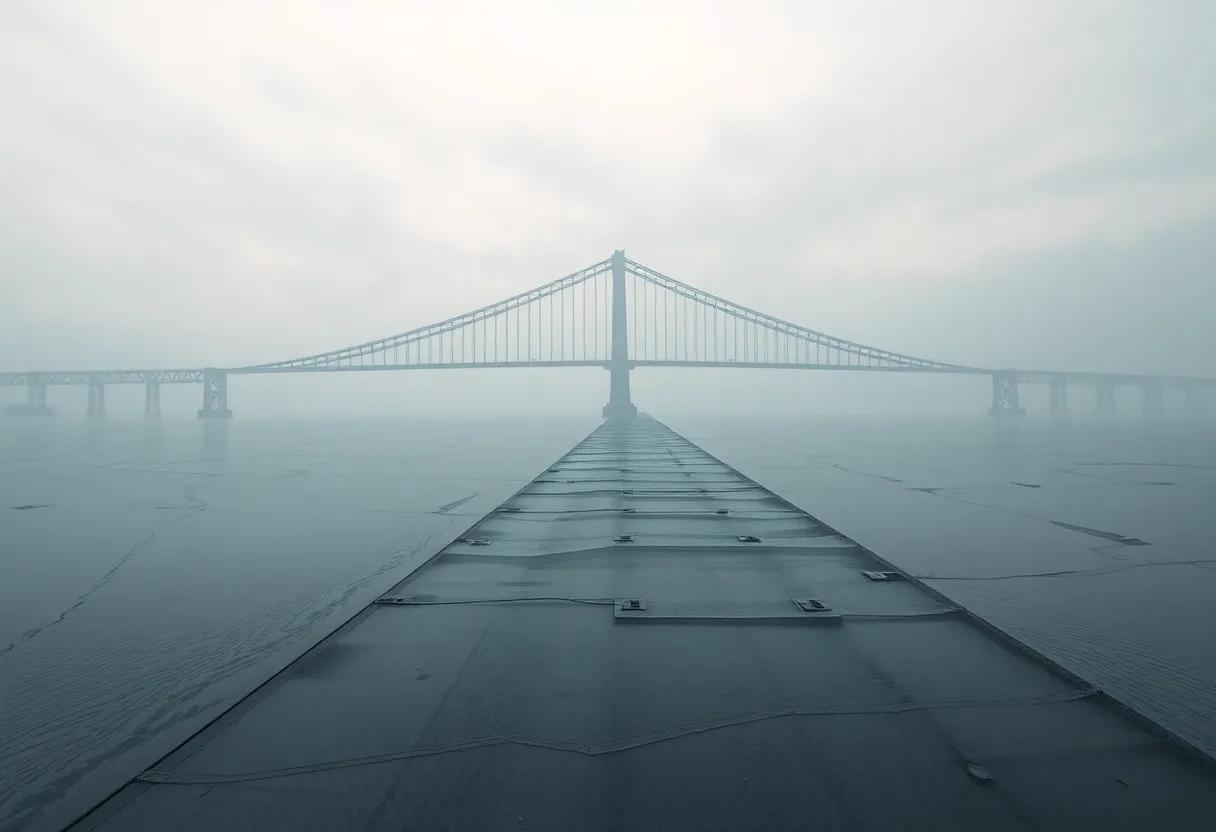
Iain Banks possesses a remarkable ability to weave together disparate narratives, creating immersive worlds that defy conventional categorization. In The Bridge, this talent is on full display as he oscillates between reality and a surreal dreamscape, inviting readers to navigate through the complexities of existence.Banks deftly constructs a duality that challenges the very nature of perception, pushing the boundaries of both science fiction and literary fiction. The narrative unfolds on multiple levels—each reflecting the protagonist’s psyche while intertwining themes of identity, memory, and the relentless quest for meaning. His vivid storytelling compels readers to confront their understanding of reality, each twist emphasizing the fragility and fluidity of human experience.
Throughout the novel, symbols and motifs emerge as pivotal elements that bridge the gap between the two realities. The architecture of the bridge itself serves as a tangible manifestation of the connection between the mundane and the transcendent. key elements from the story include:
- The Bridge: A physical and metaphorical path connecting two realms.
- Time: A fluid concept that shifts perceptions and understanding.
- Consciousness: The exploration of self and what lies beyond
This multidimensional narrative not only showcases Banks’ mastery over genre-blending but also positions The Bridge as a profound commentary on the human condition, offering readers an opportunity to reflect on the very nature of their realities.
The Way Forward
As we draw the curtain on our exploration of Iain Banks’ “The Bridge,” we find ourselves standing at the intersection of two realms—where the ordinary intertwines with the extraordinary,and reality dances on the precipice of imagination. Banks masterfully crafts a narrative that demands our attention, both for its intricate plotting and its profound insights into the human condition.
Throughout our journey,we’ve traversed the tangled pathways of consciousness,identity,and the very nature of existence. The dual realities he presents challenge us to reconsider not only the limits of our own perceptions but also the intricate tapestry of the lives intertwined within them.
In reflecting on “The Bridge,” we are reminded that literature has the power to transcend boundaries, to create bridges of its own that connect disparate thoughts and feelings. it is indeed a testament to Banks’ brilliance that, even as we turn the final page, we continue to grapple with the questions he poses, lingering in the spaces between the known and the unknown.
Thank you for joining me in this exploration. Whether you are a seasoned traveler of Banks’ worlds or a newcomer stepping onto his literary bridge for the first time, may you carry these reflections with you, ready to delve deeper into the endless possibilities that await beyond the next turn.

